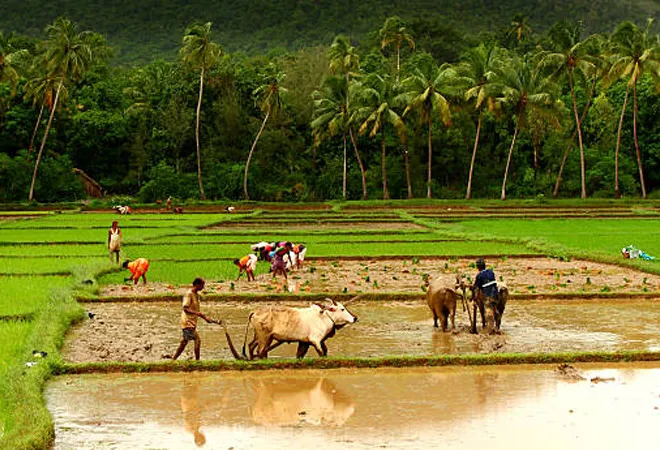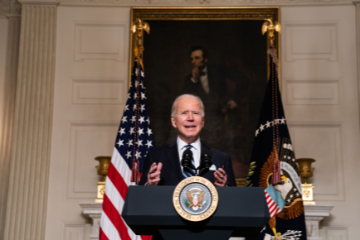
Despite long-held
historical ties, the Pacific Island Countries (PIC) found little significance in India's foreign policy. Since 2003, India has been a dialogue partner at the
Pacific Islands Forum (PIF), the region’s premier political and economic policy organisation. However, geographical distance and limited resources to devote to the region contributed to India's limited engagement with the PICs. In 2014, the increasingly volatile geopolitical landscape and the accompanying strategic and financial imperatives drove India to establish the
Forum for India-Pacific Islands Cooperation (FIPIC), a multilateral grouping established with 14 PICs. The FIPIC paved the way for India’s increased bilateral engagements with the region in healthcare and disaster relief assistance, granting occasional concessional lines of credit (LOC) and educational and technical capacity building.
India can advance this cooperation by addressing the PICs’ concerns, such as climate change-induced
food insecurity. The region’s susceptibility to climate change and global warming has adversely impacted its agriculture productivity and fishing, causing food stress. India can address these concerns by promoting agricultural diversification and sustainable fishing. This cooperation will enhance India’s regional ties, strengthen
South-South cooperation and facilitate mutual learning.
The region’s susceptibility to climate change and global warming has adversely impacted its agriculture productivity and fishing, causing food stress.
The PICs are also critical to the democratic world for balancing the rising
Chinese influence in the region. Therefore, the G20 presidency lends India a golden opportunity to consolidate the vision of a ‘
free, open, inclusive and rules-based Indo-Pacific’ and steer global action to resolve the challenges of the geopolitically, strategically and economically
important PICs.
Support from the PICs is also critical to India as it strives to gain a permanent United Nations Security Council seat.
PICs' susceptibility to climate crises
Each PIC individually contributes less than
one percent to the US$ 96.51 trillion
global GDP. The tiny PICs are scattered over just
15 percent of the earth’s land surface and contribute a mere
0.03 percent of the worldwide greenhouse gas emissions. Yet, they are at the severest receiving end of climate change threats.
Being islands, PICs are most vulnerable to climate change
impact, including submergence due to
rising sea levels,
food insecurity,
uncertain rainfall, and extreme weather events. Frequent episodes of tsunamis, cyclones, and storm surges have made the coastal farmlands
saline and uncultivable and led to increased
contamination of potable water from the surface and groundwater sources. It has also damaged
food production systems and infrastructure, impacting agricultural supply chains.
These factors caused a deficiency of yield and lesser food for consumers and livestock. For instance, in 2003,
Cyclone Ami cost Fiji US$ 35 million in lost crops. Thirteen years later, in 2016, Fiji’s yield loss caused by Cyclone Winston was pegged at US$ 100 million. Reduced local food production coupled with increased urbanisation and population growth have escalated food prices and increased
food imports from Australia and New Zealand. But this is not the only adverse impact of climate change.
Reduced local food production coupled with increased urbanisation and population growth have escalated food prices and increased food imports from Australia and New Zealand.
The
ratio of land to sea in the Pacific sea is 1:100, making fishery an integral part of the islanders' diet and commerce. Increased
coral bleaching due to temperature fluctuations has dwindled the breeding ground of the fish, causing scarcity, endangering marine life and causing loss of revenue from seafood export. PIC populations have also suffered from a deficiency of essential nutrients because of food inadequacy. Moreover, warmer temperatures and humid environments conducive to pathogen growth have made PICs susceptible to increased risk of infectious
diseases and vector and waterborne
illnesses such as cholera, typhoid, malaria, and dengue. In 2014, the
Solomon Islands recorded 52.4 cases of malaria, which spiked to 167.7 per 1,000 in 2020. Papua New Guinea ranks
fourth in the world for the highest stunt growth in children; malnutrition accounts for
33 percent of deaths.
Charting a collaborative path
It is crucial to recognise that the idea of food security is a multifaceted concept. India's own experience demonstrates unequivocally that a food-secure country may not always be
food-sufficient. Therefore, measures such as agricultural diversification, promoting sustainable fishing practices and investment in climate-resilient infrastructure, etc., are needed to promote policies for food sufficiency.
Attending the India-Pacific Islands Developing States (IPIDS) Leaders’ Meeting in New York on the sidelines of the 74
th UN General Assembly in 2019, Prime Minister Narendra Modi extended a
US$ 150 million line of credit to PICs. The line of credit is intended to help the PICs implement high-impact renewable energy and climate-related projects. India can use its learnings of successful interventions in
Africa to also share its expertise in agriculture and food security to help PICs increase domestic food production and improve food security.
- Agricultural diversification:
With the changing climatic conditions and the need to feed a growing population, it is necessary to
modify the existing
agricultural practices and encourage the cultivation of a range of crops, including drought-resistant and salt-tolerant varieties, to make climate-resilient food systems. PICs can launch research and development programmes for genetically modified seeds that enhance yield, resist biotic and abiotic stresses, adapt and mitigate climate change and fortify nutrients. India must collaborate with the PICs to share its still-evolving experience and expertise in agricultural diversification, especially for
small and marginal farm holders, to reduce cultivation costs, increase crop yield and increase farm incomes.
PICs can launch research and development programmes for genetically modified seeds that enhance yield, resist biotic and abiotic stresses, adapt and mitigate climate change and fortify nutrients.
- Promotion of sustainable fishing practices:
Maintaining the health of coastal ecosystems and preserving fish stocks can be aided by implementing regulations that support sustainable fishing methods. As the world’s
second-largest fish producer, India can guide the PICs to achieve sustainable livelihoods, especially for the marginalised and vulnerable coastal communities.
Innovative marine life preservation practices adopted by some PICs also offer global learning. For example,
Ahus, Papua New Guinea, has customised and adopted low-cost aquaculture initiatives, such as clam farming methods from the Republic of Palau, to revive and preserve its coastal reef ecosystems with clam larvae. Locals in Yap, a Micronesian island, constructed a nursery using conventional composting methods, which included food crops and plants to reforest erosion-prone coastal areas.
- Investment in climate-resilient infrastructure:
Another way that India can address the issue is by funding climate-resilient
infrastructure, such as sea walls, water storage systems, and flood-proof warehouses to store food grains. Such interventions will help protect the existing yield and create indigenous food supply stocks. Encouraging food production locally through initiatives such as community gardening can reduce dependence on imported food and increase resilience to food security risks.
India’s G20 Presidency and PICs
This year’s G20 presidency offers India an opportunity to galvanise the collective power of its members, which represent
85 percent of the global GDP and over
75 percent of international trade, to come to the rescue of their vulnerable Pacific counterparts.
Encouraging food production locally through initiatives such as community gardening can reduce dependence on imported food and increase resilience to food security risks.
Determined to become a
net-zero carbon economy by 2070, India must encourage other G20 members to meet their COP commitments and, importantly, work together to mitigate the impact of climate change in Pacific Island countries. India’s G20 presidency can create pathways for coordinated international efforts to increase the use of renewable energy and develop new technologies to reduce emissions.
India can promote sustainable agricultural methods internationally with an
agroecological,
circular,
precision farming and
climate-smart agriculture approach to receive better production outputs while ensuring good health and reducing the eventual carbon footprints globally. Advancing research and innovation in the field of food security and agriculture will help not only PICs but also all coastal countries. India can assume a leadership role and secure coordination and cooperation from all G20 nations to convert these plans into actions.
Growing security threats and volatile geopolitical dynamics in the Indo-Pacific have put PICs under the global spotlight. New Delhi’s aim to become a global
power in the coming decades with a vision of multipolar world order will be possible by expanding its
goodwill in this region. Galvanising G20 support for PICs and further strengthening its Pacific policies will contribute to the realisation of this vision.
Nutika Kale is a research intern with ORF Mumbai.
The views expressed above belong to the author(s). ORF research and analyses now available on Telegram! Click here to access our curated content — blogs, longforms and interviews.



 Despite long-held
Despite long-held  PREV
PREV

